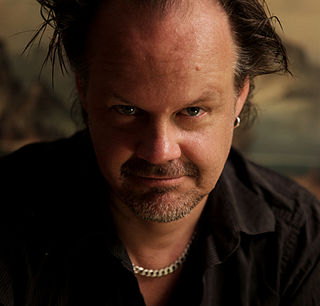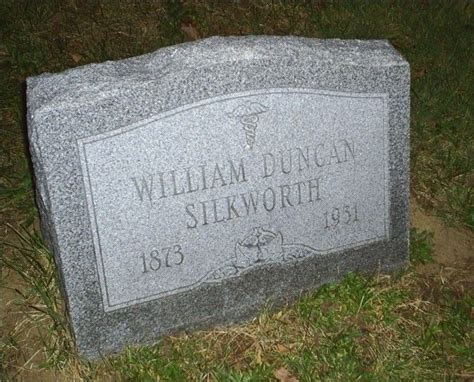Top 520 Sentimental Quotes & Sayings - Page 9
Explore popular Sentimental quotes.
Last updated on April 20, 2025.
"Hope, you see, Wal'r," said the Captain, sagely, "Hope. It's that as animates you. Hope is a buoy, for which you overhaul your Little Warbler, sentimental diwision, but Lord, my lad, like any other buoy, it only floats; it can't be steered nowhere. Along with the figure-head of Hope,' said the Captain, 'there's a anchor; but what's the good of my having a anchor, if I can't find no bottom to let it go in?"
I have a little bit of a pet peeve about how the middle class is depicted in movies. I feel like they tend to be either depicted in a very sentimental way, where everybody has a heart of gold except for the villains you're supposed to hiss at, or there's a sort of indie-style version... When it's done well, it's brilliant, it's Blue Velvet. But when it's done poorly, it feels like shooting fish in a barrel, just saying, "Ooh, scary suburbs."
Someone with a fresh mind, one not conditioned by upbringing and environment, would doubtless look at science and the powerful reductionism that it inspires as overwhelmingly the better mode of understanding the world, and would doubtless scorn religion as sentimental wishful thinking. Would not that same uncluttered mind also see the attempts to reconcile science and religion by disparaging the reduction of the complex to the simple as attempts guided by muddle-headed sentiment and intellectually dishonest emotion?
Goresthorpe Grange is a feudal mansion - or so it was termed in the advertisement which originally brought it under my notice. Its right to this adjective had a most remarkable effect upon its price, and the advantages gained may possibly be more sentimental than real. Still, it is soothing to me to know that I have slits in my staircase through which I can discharge arrows; and there is a sense of power in the fact of possessing a complicated apparatus by means of which I am enabled to pour molten lead upon the head of the casual visitor.
I'm afraid that people who know me as I usually am will discover I have another side, a better and finer side. I'm afraid they'll mock me, think I'm ridiculous and sentimental and not take me seriously. I'm used to not being taken seriously, but only the 'light-hearted' Anne is used to it and can put up with it; the 'deeper' Anne is too weak.
I have, for my own projected works and ideas, only the silliest and dewiest of hopes; no matter what, I am romantic enough or sentimental enough to wish to contribute something to life's fabric, to the world's beauty.... [S]imply to live does not justify existence, for life is a mere gesture on the surface of the earth, and death a return to that from which we had never been wholly separated; but oh to leave a trace, no matter how faint, of that brief gesture! For someone, some day, may find it beautiful!
That's a nice song,' said young Sam, and Vimes remembered that he was hearing it for the first time. It's an old soldiers' song,' he said. Really, sarge? But it's about angels.' Yes, thought Vimes, and it's amazing what bits those angels cause to rise up as the song progresses. It's a real soldiers' song: sentimental, with dirty bits. As I recall, they used to sing it after battles,’ he said. 'I've seen old men cry when they sing it,’ he added. Why? It sounds cheerful.' They were remembering who they were not singing it with, thought Vimes. You'll learn. I know you will.
Power properly understood is nothing but the ability to achieve
purpose... one of the great problems of history is that the concepts of love and power have usually been contrasted as opposites --- polar opposites --- so that love is identified with a resignation of power, and power with a denial of love... What is needed is a realization that power without love is reckless and abusive, and love without power is sentimental and anemic. Power at its best is love implementing the demands of justice, and justice at its best is power correcting everything that stands against love.
When you open a book,” the sentimental library posters said, “anything can happen.” This was so. A book of fiction was a bomb. It was a land mine you wanted to go off. You wanted it to blow your whole day. Unfortunately, hundreds of thousands of books were duds. They had been rusting out of everyone’s way for so long that they no longer worked. There was no way to distinguish the duds from the live mines except to throw yourself at them headlong, one by one.
Editing rooms are kind of, by definition, a bubble of you and the editor and what you're thinking. It's a truth-telling thing to watch it through someone else's eyes, is to get another level of real with your material. Like, "Maybe that's not that funny. Maybe that's not as interesting. Maybe that's redundant to something else. Maybe we can cut down." I don't know. It's a brutal, honest process. You've got to be pretty - You can't be sentimental. You have to be. It's a cold process. You can't be nostalgic. You have to make those tough decisions.
I like what I see when I look in the mirror. If I get sentimental, I look and say, "Uh. It's a bad day. They beat up on me," this, that, and the other thing. But ya know? We've spent one billion trying to convince people to not smoke. It's been phenomenally successful. We've probably saved millions of lives. There aren't many people that have done that. So, you know, when I get to heaven, I'm not sure I'm gonna stand for an interview. I'm going right in.
To laugh is to risk appearing a fool. To weep is to risk appearing sentimental. To reach out to another is to risk involvement. To expose feelings is to risk exposing your true self. To place your ideas and dreams before a crowd is to risk their loss. To love is to risk not being loved in return. To hope is to risk pain. To try is to risk failure. But risks must be taken, because the greatest hazard in life is to risk nothing.
I never had a dog that showed a human fear of death. Death, to a dog, is the final unavoidable compulsion, the least ineluctable scent on a fearsome trail, but they like to face it alone, going out into the woods, among the leaves, if there are any leaves when their time comes, enduring without sentimental human distraction the Last Loneliness, which they are wise enough to know cannot be shared by anyone.
Literature is an aspect of story and story is all that exists to make sense of reality. War is a story. Now you begin to see how powerful story is because it informs our worldview and our every action, our every justification is a story. So how can story not be truly transformative? I've seen it happen in real ways, not in sentimental ways or in the jargon of New Age liberal ideology.
Sure, I’m dramatic and sloppily semi-cynical and semi-sentimental. But, in leisure years I could grow and choose my way. Now I am living on the edge. We all are on the brink, and it takes a lot of nerve, a lot of energy, to teeter on the edge, looking over, looking down into the windy blackness and not being quite able to make out, through the yellow, stinking mist, just what lies below in the slime, in the oozing, vomit-streaked slime; and so I could go on, my thoughts, writing much, trying to find the core, the meaning for myself.
As soon as a man stands up and says he is right or his church is right, and all others are wrong, he is himself all wrong. He does not know that upon the proof of all the others depends the proof of his own. Love and charity for the whole human race, that is the test of true religiousness. I do not mean the sentimental statement that all men are brothers, but that one must feel the oneness of human life.
Norman Rockwell spent his career painting pictures that helped people understand their own feelings...pictures that enriched their own experiences and celebrated their own lives. But the art establishment branded him an 'illustrator', a sentimental one at that. Real artists, they said were doing art for art's sake, not for the sake of the bourgeois public. Real artists were putting swiggles, smears or daubs of paint on the canvas. They were doing 'innovative' and 'creative' work. If they were hideous and grotesque; we know that's what life really is!
Her kitsch was the image of home, all peace, quiet, and harmony, and ruled by a loving mother and a wise father. It was an image that took shape in her after the death of her parents. The less her life resembled the sweetest of dreams, the more sensitive she was to its magic, and more than once she shed tears when the ungrateful daughter in a sentimental film embraced the neglected father as the windows of the happy family's house shone out into the dying day.
TV taste is an aftertaste. Whatever gets on the tube is always a foregone conclusion, a fait accompli. That is, any new ideas or social changes have already been fought for in the real world of the streets, or in the bedroom or even the law courts long before they reach the screen. By the time you see it on prime time, it's usually all over and done with, whatever it was. Television by definition is not avant garde. It is often reactionary and always sentimental.
Only with great care. For thousands, carols will be their only link with a church. At the same time, sentimentality is perhaps the single most dangerous feature of our Church and culture-and the sentimental air is never thicker than at Christmas. The Incarnation is messy, dirty, and resonates with the crucifixion. We need a new wave of carol writing that can gradually swill out the nonsense and catch the piercing, joy-through-pain refrains of the New Testament.
There are two kinds of pity. One, the weak and sentimental kind, which is really no more than the heart's impatience to be rid as quickly as possible of the painful emotion aroused by the sight of another's unhappiness, that pity which is not compassion, but only an instinctive desire to fortify one's own soul agains the sufferings of another; and the other, the only one at counts, the unsentimental but creative kind, which knows what it is about and is determined to hold out, in patience and forbearance, to the very limit of its strength and even beyond.
All stories are about wolves. All worth repeating, that is. Anything else is sentimental drivel. ...Think about it. There's escaping from the wolves, fighting the wolves, capturing the wolves, taming the wolves. Being thrown to the wolves, or throwing others to the wolves so the wolves will eat them instead of you. Running with the wolf pack. Turning into a wolf. Best of all, turning into the head wolf. No other decent stories exist.
Motherhood, to be sure, receives a great deal of sentimental adulation, but only if it is committed in accordance with rules which have been prescribed by a predominantly masculine society. Per se it is accorded no respect whatever. When it results from a sexual relationship which has been duly sanctioned by organized society, it is holy, no matter how much it may transgress the rules of decency, health, or common sense. Otherwise it is a sin meriting social ostracism for the mother and obloquy for the child - an ostracism and obloquy, significantly enough, in which the father does not share.
End production today. Wrap party as usual a little sad. Slow danced with Scarlett. Broke her toe. Not my fault. When she dipped me back, I stepped on it. Penélope [Cruz] and Javier [Bardem] anxious to work with me again. Said if I ever come up with another screenplay to try and find them. Goodbye drink with Rebecca [Hall]. Sentimental moment. Everyone in cast and crew chipped in and bought me a ballpoint pen.
The paintings that laughed at him merrily from the walls were like nothing he had ever seen or dreamed of. Gone were the flat, thin surfaces. Gone was the sentimental sobriety. Gone was the brown gravy in which Europe had been bathing its pictures for centuries. Here were pictures riotously mad with the sun. With light and air and throbbing vivacity. Paintings of ballet girls backstage, done in primitive reds, greens, and blues thrown next to each other irreverantly. He looked at the signature. Degas.
Goodness was more difficult than evil. Evil men knew that more than good men. That's why they became evil. That's why it stuck with them. Evil was for those who could never reach the truth. It was a mask for stupidity and lack of love. Even if people laughed at the notion of goodness, if they found it sentimental, or nostalgic, it didn't matter -- it was none of those things, he said, and it had to be fought for.
Only the heart knows the correct answer. Most people think the heart is mushy and sentimental. But it's not. The heart is intuitive; it's holistic, it's contextual, it's relational. It doesn't have a win-lose orientation. It taps into the cosmic computer - the field of pure potentiality, pure knowledge, and infinite organizing power - and takes everything into account. At times it may not even seem rational, but the heart has a computing ability that is far more accurate and far more precise than anything within the limits of rational thought.
Sitting for a picture is morbid business. A portrait doesn't begin to mean anything until the subject is dead. This is the whole point. We're doing this to create a kind of sentimental past for people in decades to come. It's their past, their history we're inventing here. And it's not how I look now that matters. It's how I'll look in twenty-five years as clothing and faces change, as photographs change. The deeper I pass into death, the more powerful my picture becomes. Isn't this why picture-taking is so ceremonial? It's like a wake. And I'm the actor made up for the laying-out.
The appeal of the spectrally macabre is generally narrow because it demands from the reader a certain degree of imagination and a capacity for detachment from every-day life. Relatively few are free enough from the spell of the daily routine to respond to rappings from outside, and tales of ordinary feelings and events, or of common sentimental distortions of such feelings and events, will always take first place in the taste of the majority; rightly, perhaps, since of course these ordinary matters make up the greater part of human experience.
Ideas about mothers have swung historically with the roles of women. When women were needed to work the fields or shops, experts claimed that children didn't need them much. Mothers, who might be too soft and sentimental, could even be bad for children's character development. But when men left home during the Industrial Revolution to work elsewhere, women were "needed" at home. The cult of domesticity and motherhood became a virtue that kept women in their place.
Horror would not annoy a soldier any more than the sight of a hammer annoys a carpenter. It is sentimental to pretend that horror is not the tool of the soldier, just as the hammer is the tool of the carpenter. We live off death and the threat of death and we must take it calmly and use it well.... Eventually I came to enjoy killing, as a pianist enjoys the Czerny which keeps his fingers limber for the Beethoven.
While it might surprise many ecologists to hear, capitalism is itself the ultimate form of conservationism. Capitalists seek to conserve resources, not because of sentimental feelings about nature or the earth or whales or worry about the well-being of future generations, but simply because every drop of oil, every ton of ore, every shipment of wood saved is a cost reduction and money in the pocket.
I am not even an atheist so much as I am an antitheist; I not only maintain that all religions are versions of the same untruth, but I hold that the influence of churches, and the effect of religious belief is positively harmful. Reviewing the false claims of religion, I do not wish, as some sentimental materialists affect to wish, that they were true. I do not envy believers their faith. I am relieved to think that the whole story is a sinister fairy tale; life would be miserable if what the faithful affirmed was actually the case.
Postmodern irony and cynicism's become an end in itself, a measure of hip sophistication and literary savvy. Few artists dare to try to talk about ways of working toward redeeming what's wrong, because they'll look sentimental and naive to all the weary ironists. Irony's gone from liberating to enslaving. ... The postmodern founders' patricidal work was great, but patricide produces orphans, and no amount of revelry can make up for the fact that writers my age have been literary orphans throughout our formative years.
I hope that I state your case fairly: One of my great fears is misrepresenting you, even to myself, now that you are not here to set me right. The truth is that you did not believe in idealism. All love was suspect; even a saint's was just differed self-interest. And it was impossible to argue without sounding either sentimental or naive. Cynicism has all the smart words on it's side; idealism uses a nursery school dictionary. And you studied early to disguise your childhood pain. But it is not universal.
I always loved horror as a kid. On the one hand, I really love monsters, because in a way I feel like I related to their outsider status and like the sentimental romantic plight of the monster. More importantly though I feel like people are completely motivated by fear, especially with our political system here in America which is just degenerating into more and more fear mongering and it gets in the way of real discourse, plus it's just something I'm obsessive about and have always been a little bit of a paranoid guy.
If any feel that as psychiatrists directing a hospital for alcoholics we appear somewhat sentimental, let them stand with us a while on the firing line, see the tragedies, the despairing wives, the little children; let the solving of these problems become a part of their daily work, and even of their sleeping moments, and the most cynical will not wonder that we have accepted and encouraged this movement. We feel, after years of experience, that we have found nothing which has contributed more to the rehabilitation of these men than the altruistic movement now growing up among them.
"God is love". His is not a sentimental, emotional kind of love but the love of the Father who is the origin of all life, the love of the Son who dies on the Cross and is raised, the love of the Spirit who renews human beings and the world. Thinking that God is love does us so much good, because it teaches us to love, to give ourselves to others as Jesus gave himself to us and walks with us. Jesus walks beside us on the road through life.






































